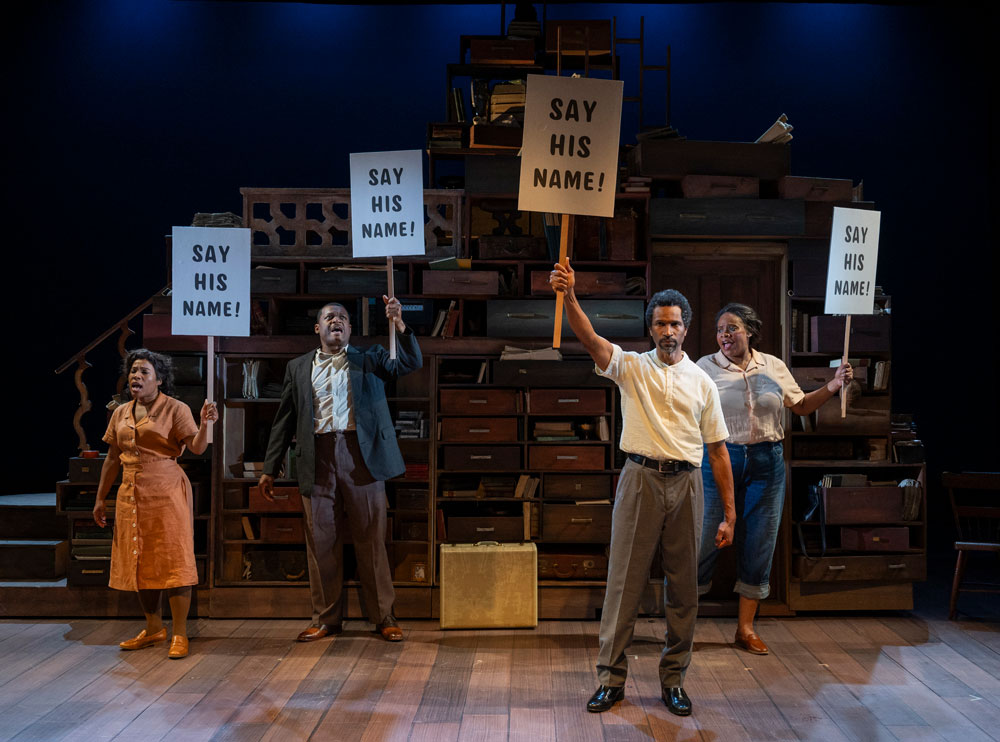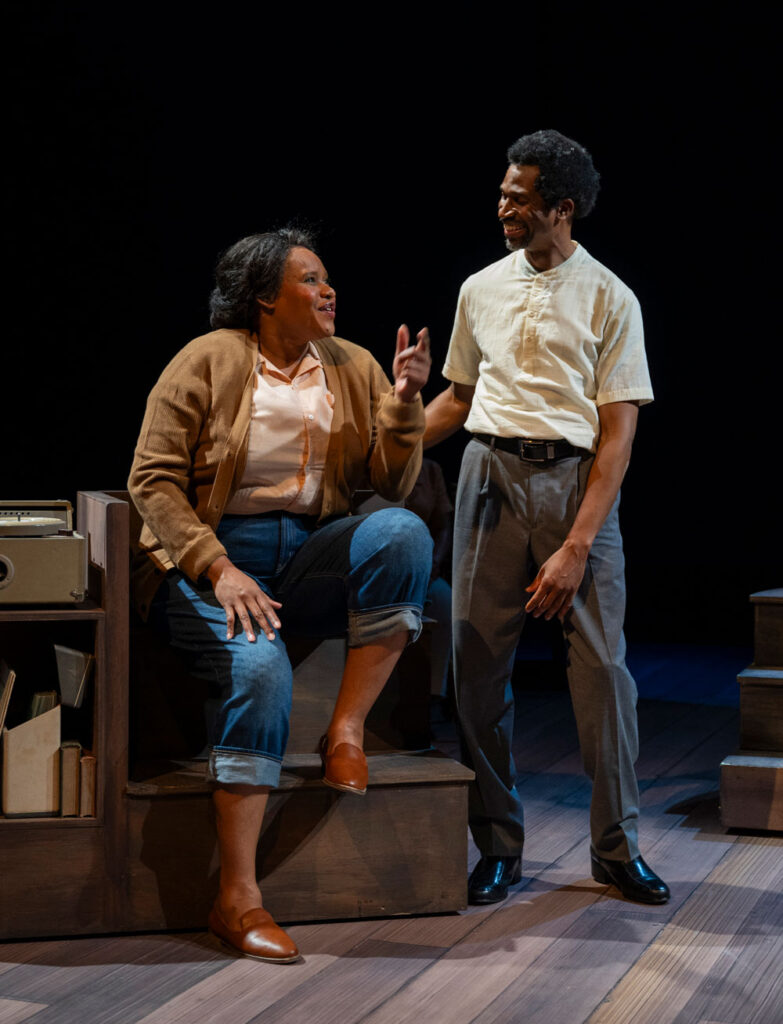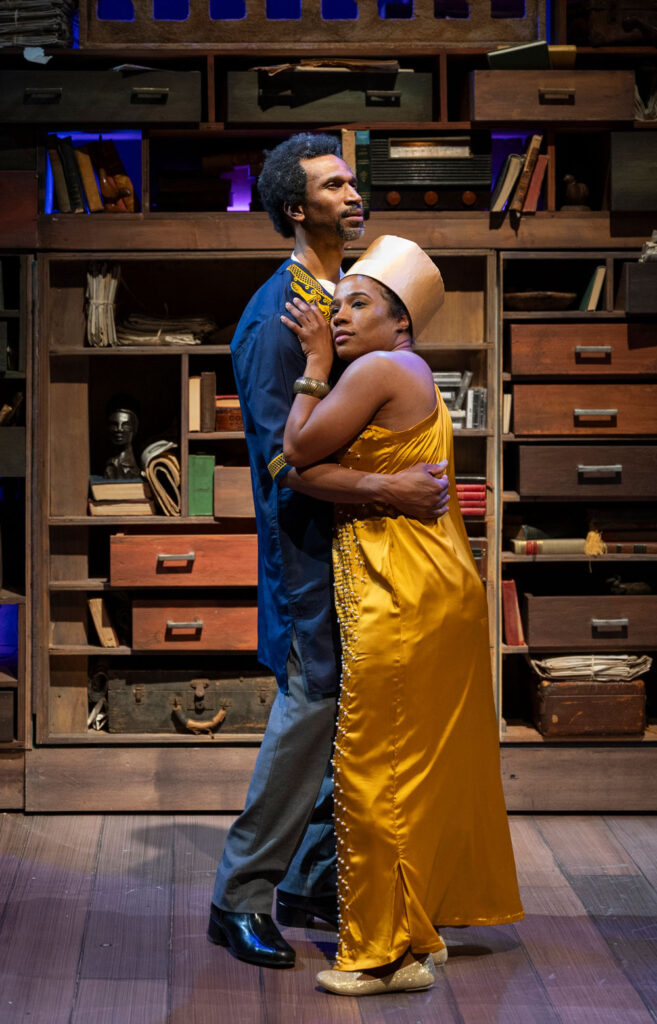
The acquisition of fame and notoriety may indeed be gifts from the stars; a matter of destiny where personal exceptionalism inevitably leads to broad recognition. In the world premiere of Stokely: The Unfinished Revolution, we get a strong sense of how it manifests over time.
Time also has a tendency of turning the past gray, causing memories to fade and allowing our appreciation to wane about those who dedicated their lives to making the world a more fair and better place. The efforts of men and women leading the civil rights movement at its zenith count among those legions. In light of what was achieved during those definitive days of the 1960s and where the country stands today, their contributions pushed the needle only so far. Despite the strides that have been made in ending race-based repression, much more is yet to accomplished in order to realize its absolute eradication.
In her biographical treatment of Stokely Carmichael, one of the most charismatic and pivotal figures during that convulsive and cathartic era, playwright Nambi E. Kelley shows how love, intelligence and an intrinsic sense of worth forged a man whose mark on history is still being measured. As new generations learn of his efforts to realize Black equity, he continues to inspire and nurture conscientious activism. Stokely: The Unfinished Revolution also looks closely at the important relationships that helped shape the way he viewed himself and the larger world. Exceedingly rich throughout, the depictions of these interactions; especially with his mother, showcase Kelley’s writing at its best. Natural, direct and incisive, her narrative provides penetrating insights into a fertile environment that promoted self-worth. The kind of self-worth that expands out and encompasses people who share your plight as well as your heritage.

A memory play that looks back as it tells its story, we meet Carmichael (Anthony Irons) middle aged, terminally ill and working with his mother to preserve his legacy. At this point in his life, he’s long ago changed his name to Kwame Ture and is now living in the West African country of Guinea. He and his mother are collecting and categorizing documents and recordings that chronicle his years championing Black empowerment. Natives of Trinidad, she left the island first to travel to New York with the goal of creating a new, more fulfilling life for herself as well as her family. Like many immigrants, she was compelled to initially leave her children behind and send for them later. A decision that would prove a thorn in their relationship further down to road. Wandachristine is a marvel as Stokely’s mother, Mabel. Through Tasia A. Jones sure and expressive direction and armed with Kelley’s evocative writing, she presents a character who wears pragmatism and pride with the kind of assurance you rarely witness on stage or screen. Neither prevent her from effortlessly embodying the incomprehensible purity of a mother’s love. Her complexity, sharp wit and intellect make her infinitely intriguing as we watch her during the defining episodes of her son’s life.
Equally fascinating in his portrayal of an icon, Irons in the title role goes to the core to deliver a performance that becomes more and more absorbing as the play progresses. Always extremely bright, once Stokely joined his parents in New York, the expectation was that he’d chase the American Dream using the standard model. Excel in school and enter one of the hallowed professions of law or medicine. Acceptance into one of the elite high schools in the city and easily mastering its curriculum brought attention from the Ivy League; all but insuring a pathway to storybook success. Standing at a crossroads when it was time to choose a college, he ultimately made a decision that would set him on his course of advocacy. By enrolling in the historically Black Howard University in Washington D.C. rather than venerable Harvard, the direction of his life was cast. In 1955, when Emmet Till was murdered, he and Stokely were the same age, 14. For many people in America and around the world, Till’s killing was a watershed moment. As depicted in this production, it may have been a turning point for Carmichael as well. Five years later, he was the youngest person to put his life on the line protesting segregation in the deep South by going in his first Freedom Ride. He would go on to participate in sit-ins at lunch counters where he was often badly beaten before being arrested. Some of the most memorable reenactments of the play are the scenes that dramatize the brutality protesters endured in their push for social justice.

It’s during this time he comes into contact with Ella Baker, Diane Nash, and Martin Luther King; pillars of the civil rights movement and wise mentors and peers who helped shaped the way his activism would evolve. By bringing them into the mix, we see the impact each of these people had on Stokely’s life and are reminded of their own remarkable contributions.
With the exception of Irons, every member of the ensemble plays multiple roles. In an exceedingly strong cast, Melanie Brezill shines bright in all the characters she inhabits. Whether portraying the level headed and irrepressible Ella Baker, or in her role as the feisty lady of steel, Fannie Lou Hamer, Brezill is electric. Embroidered in song, much of it spiritually tinged, Stokely often uses music to cement context and provide wonderful texture. Religious conviction was a potent fuel that propelled the civil rights movement and in Stokely, it was frequently Brezill’s sonorous voice that expressed it in melody.
Also adroit shape shifters deftly altering their identities in keeping with the story’s progression, Dee Dee Batteast and Kelvin Roston, Jr. proved themselves indispensable in making this effort such an engrossing study of an extraordinary man. Beautifully paced and with its innovative approach to storytelling, Stokely: The Unfinished Revolution uses history to give us a clearer perspective of the present by refreshing our knowledge of an American legend.
Stokely: The Unfinished Revolution
Through June 16, 2024
Court Theatre
5535 S. Ellis Ave.
Chicago, IL 60637